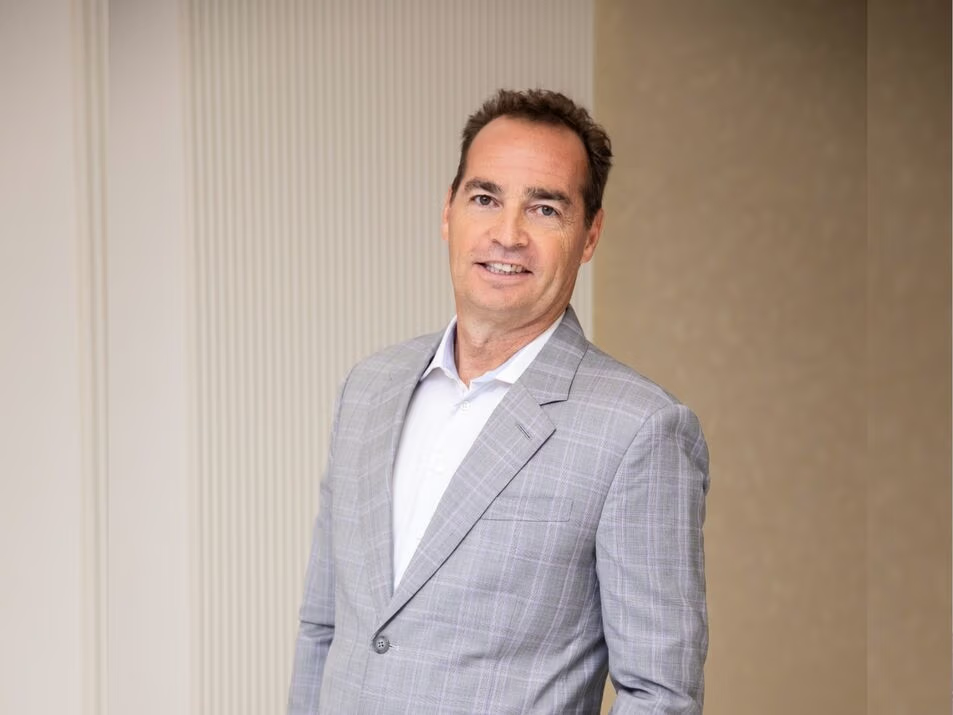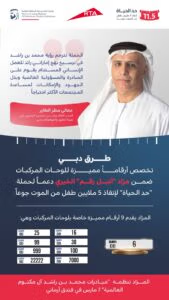What if your annual check-up could predict your health ten years from now, and actually help you live better, not just longer? That’s the philosophy behind Skai Health, and the mission of its CEO and Founding Scientist, Dr. Todd McAllister, a biotech pioneer whose work has shaped the fields of regenerative medicine, longevity, and now proactive performance healthcare.
With Skai Health expanding from London to the GCC, and a new flagship clinic opening soon in Dubai’s City Walk, Dr. Todd is flipping healthcare on its head: less wait until you’re sick, more stay at your peak.
But his journey began decades earlier, long before longevity medicine became a buzzword. When asked about what first sparked his interest in biotechnology and regenerative medicine, Dr. Todd admits the origin story is almost hard to recall, “I think it is hard to transition into the body around my initial academic career that spans back 30 years – I’m not sure I can remember what sparked that passion. I had an opportunity to lead a team of scientists, engineers, and clinicians that became the first group to make a fairly significant scientific step forward…Fast forward a few decades, and we could grow living tissues in the lab for implant.”
He prefers a simpler introduction instead, “I was one of the early pioneers in the field of cell-based therapies and developed a reputation as a visionary in creating ‘firsts.’ It was that same spirit that led to the formation of Fountain Life – another ‘first.’”
That pioneering spirit carried him through the founding of Cytograft, one of the first companies in the world to bring a lab-grown, cell-based product to commercial approval. But being first came with lessons. “It is fun and a remarkable challenge to do something first, but there is an adage that says, ‘The second mouse gets the cheese.’ Skai Health is the second (or even third) iteration of the model we originated at Fountain Life.”
His early work helped shape an entire generation of biotech innovation—but his next chapter would redefine preventive healthcare itself.
Dr. Todd’s next venture, Fountain Life, became a global brand and one of the earliest companies to elevate longevity medicine into the mainstream.
“Fountain was arguably the first brand that promoted longevity medicine and was the first brand to combine risk assessment with performance optimisation and advanced therapeutics.”
But the challenge wasn’t the science, it was the mindset. “Few consumers understand that good health is more than the absence of disease… Few patients realise that they can change the trajectory of aging.”
This challenge would ultimately shape the philosophy behind Skai Health.
Why Skai Health Was Born
Skai is the natural evolution of everything Dr. Todd has built, but with a sharper focus and stronger alignment.
“The formation of Skai was inspired by two simple points. First, I had a remarkable group of co-founders who were aligned around a vision of creating trust and engagement with our patient population via a white-glove concierge primary care model… The second factor was Dubai.” Dubai, he notes, sits at the intersection of need, growth, and global mindset—an ideal launchpad for a new model of healthcare.
Traditional healthcare is reactive, he says, and for high-performing professionals, dangerously outdated.
“Health care is traditionally a grudge spend… Our goal is to build trust with our clients through longitudinal engagement and to encourage that engagement by making the visit feel more like a trip to the spa or the gym.” But the real differentiator? Tracking progress, not drowning clients in data.
“Being able to show progress is a critical element in our model… Telling them that an 8-point reduction in cholesterol will extend health span by nearly two years is a completely different conversation.” Skai builds engagement not around fear, but around measurable performance.
Preventive care requires a mindset shift, not just for patients, but for insurers. “On average, it takes the healthcare system about 17 years to adopt new technologies… About 15% of our patients have a life-impacting finding, and about 3% have a life-threatening finding.”
Despite the hype around longevity drugs, Dr. Todd keeps the science grounded: “While it is tempting to jump on new longevity treatments like senolytics or rapamycin… we know that simple things like decreasing fat mass and increasing muscle mass can have a profound impact on aging outcomes.”
But he also sees the rise of powerful, proven interventions: “Hormone optimisation… is a complete game-changer… Stem cell treatments… have a massive impact on muscle maintenance and soft tissue recovery.”
What makes Skai unique is alignment: “Our profits come exclusively from memberships… We accept no referral fees… we are fully aligned with the client in driving quality outcomes.”
For Dr. Todd, cultural differences matter less than mindset: “We have the same challenge with all of our patients – getting them to understand the value of proactive health and encouraging them to focus on health optimisation rather than merely the absence of disease.”
Dubai, however, offers something special: a population ready for what comes next.
Advice for Founder-Scientists: Think in Years, Not Weeks
Having raised over $100 million and built multiple global ventures, Dr. Todd has one core philosophy, “Set an expectation with investors for where you will be in three years and resist the temptation to react every week to the latest problem or challenge… Long-term success requires a long-term vision and the patience to realize that vision.”
Why CEOs Must Invest in Health First
Dr. Todd McAllister notes that traditional healthcare remains “a grudge spend” for most people, with good health often viewed simply as the absence of disease. He points out that elite athletes such as LeBron James and Tom Brady stay competitive well into their 40s because they make deliberate, ongoing investments in their health, a model he believes CEOs and senior executives should emulate to extend their careers, maintain energy, and sustain peak performance.
According to Dr. McAllister, hormone optimisation can be “a game-changer” for improving energy levels and mental focus, while improvements in body composition and power output have a direct impact on long-term performance. He adds that comprehensive risk assessments are critical for reducing the chances of major health events such as cardiovascular disease or cancer.
He argues that the value proposition for executives is clear: adopting a proactive, performance-focused approach to healthcare can significantly enhance professional longevity, day-to-day effectiveness, and overall quality of life.






